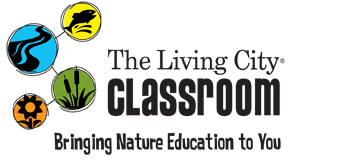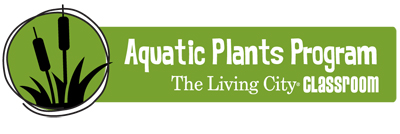
Toronto and Region Conservation Authority (TRCA) offers a variety of fun and interactive programs that bring nature education to you at NO COST to you.
Whether you are a classroom teacher, student or administrator, TRCA has a mobile outreach program that brings nature education to your community.
Watershed on Wheels Program

WOW brings all the necessary equipment to engage students in a variety of fun, half day, learning experiences. You’ll be WOW’ed with these programs!
Yellow Fish RoadTM Program

What is the Yellow Fish Road™ program?
The Yellow Fish Road™ program was developed by Trout Unlimited Canada. Your Yellow Fish Road™ program will start with an interactive presentation about storm water pollution that shows how storm drains are linked to local water bodies without any purification. Next you will go outside to paint local storm drains with yellow fish symbols and distribute educational leaflets to homes in the neighbourhood. By participating in the program your group can protect local water bodies and help to raise awareness about storm water pollution.
Who can participate?
The Yellow Fish Road™ program is ideal for students in Grades 2 -12, Guides and Scouts, and corporate and community groups.
When can I participate?
This half-day program runs from mid-April until the end of October each year.
How can I learn more or request a program?
Questions? Contact the Yellow Fish Road™ coordinator at 416.661.6600 ext. 5764 or yellowfishroad@trca.on.ca
Yellow Fish Road™ Resources
- Yellow Fish Road™ Brochure
- Yellow Fish Road™ Participant Guide
- Yellow Fish Road™ PowerPoint Presentation
- Yellow Fish Road™ Presentation Speaking Notes
- Trout Unlimited Canada Participant Agreement
Aquatic Plants Program

In the winter, each participating class receives kits to grow native aquatic plants in the classroom. In the spring, schools travel to a local wetland to transplant their aquatic plants and participate in a half-day experience, learning about the important roles wetlands play in improving water quality. Participants rotate through four unique educational stations to also learn about storm water pollution and local wildlife.
Sign up for this program before the end of January. The growing kits are delivered just after March Break. Students grow and care for the plants until the planting day in May or June.
Preparation
It is the teachers’ responsibility to arrange and cover costs associated with transportation to the planting site; Students must bring a water bottle, hat, sunscreen, wear clothing that can get dirty, and lunch if you are staying on site; Name tags for students are helpful.
Pollinator Plants Program

The Pollinator Plants Restoration Project engages community groups, schools and faith groups in the restoration of pollinator habitat through wild flower planting, community gardens and education.
